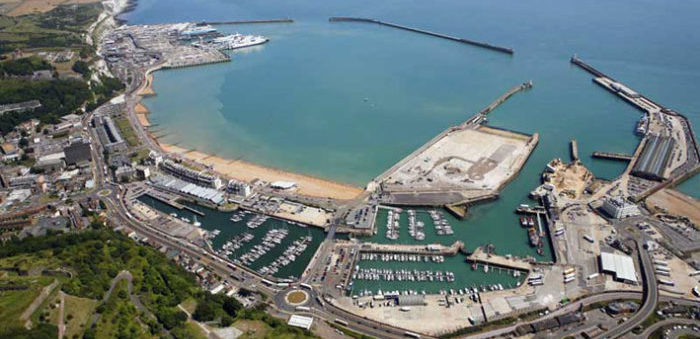UK ports have been working with the government to find ways to mitigate the possible cross border problems that might arise at Ro-Ro ports in the short term, in case of a ‘no-deal’ Brexit. However, the British Ports Association (BPA) says that there are still concerns about the level of preparedness of the logistics sector and the possible impact of a ‘no-deal’ Brexit.
Commenting on the situation, British Ports Association’ Chief Executive, Richard Ballantyne, highlighted that this is an uncertain period for the UK. For this reason, cooperation and the sharing of information is needed to ensure a resilient planning. He also added that in this aspect, some of the government’s planning assumptions need refinement but there is a good dialogue locally.
[smlsubform prepend=”GET THE SAFETY4SEA IN YOUR INBOX!” showname=false emailtxt=”” emailholder=”Enter your email address” showsubmit=true submittxt=”Submit” jsthanks=false thankyou=”Thank you for subscribing to our mailing list”]
Moreover, regarding attempts to prevent a post Brexit disruption, government officials have listened to the industry. Overall, they have tried to establish realistic processes that will help address disruption in a ‘no-deal’ scenario. However, the wider impact assessments released by the government include warnings about the economy.
If the economy slows down, people and businesses buy, build, manufacture and invest less which typically leads to a slow down in trade. There are also concerns that the wider logistics industry and traders might not be ready and we welcome moves to allow them to prepare
Specifically, the government’s Brexit impact assessment expects that the UK economy would be between 6.3% to 9% less in the long term in a no deal scenario. There could also be important variation across the UK:
- Wales – 8.1%;
- Scotland – 8.0%;
- Northern Ireland – 9.1%;
- North East of England – 10.5%.
Mr. Ballantyne also provided his opinion on a Drewry report regarding the possible impacts of Brexit. He said that:
The Drewry study shows there is certainly resilience in UK-EU short sea market but it highlights that while many of the Government’s mitigation measures should help Roll-on Roll-off ferry traffic flow, some of these customs arrangements and systems are untested. It also demonstrates that potential traffic peaks could need to be managed underlining the importance of the regional resilience planning exercises
The report concluded that the Port of Dover has the resilience to cope with moderate disruption that could arise from Brexit and there is latent short sea capacity to absorb significant overflow at the port in the event of capacity constraints.
Handling half of all the freight traffic moved to and from EU, Dover is by far the UK’s largest RoRo port. Given its importance, we were keen to assess the potential effects of Brexit on Dover capacity
Tim Power, head of Drewry Maritime Advisors, said.

































































